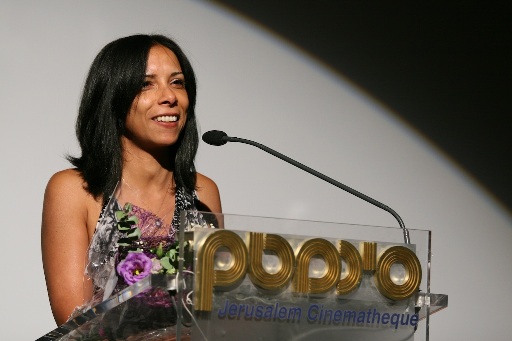
What chance encounter will change your life? If you are a documentary filmmaker, and the subject of your own film, this is a charged question not only for you, but anyone you happen to meet. It is one thing to impose the constant presence and close scrutiny of the camera on your own life, but how will it affect those close to you and your relationships with them? What happens when you wander into the life of someone making a documentary about that life?
These were some of the questions in my mind as the credits rolled on the documentary “77 Steps”, screened on Friday, July 9, at the 27th Jerusalem Film Festival, in the presence of Ibtisam Salh Mara’ana, the film’s creator. The film follows the relationship between Ibtisam, a Muslim from a village in the north, and Jonathan, her Jewish-Canadian neighbor in Tel Aviv. Personal, political and artistic all converged as Mara’ana stepped up to the mic after the screening.
Visibly moved, she said, “Thank you. I’m already crying…what should I say first? Where is Yonatan? (The Hebrew version of Jonathan) Do you feel like coming up here? Come.” He joined her onstage, carrying a bouquet of flowers, and she quipped, “Don’t tell me these are for me. You never brought me flowers.”
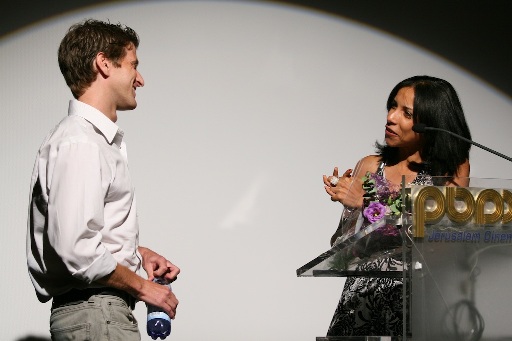
These two courageous people not only tried to pursue a relationship that broke all the rules – they let the world watch. One, as part of an artistic process, the other…who knows? In this film, as in many other personal documentaries, it is not always possible to discern the extent to which the people filmed want to be involved in such an endeavor. The film itself only testifies that they were willing to be filmed and have the footage included in the final product.
Mara’ana addressed the audience, saying, “When we fall in love, our heart doesn’t ask us if it is permitted or forbidden. I was not blessed with white skin…” The flow of tears stopped the flow of words, but she regained her voice and continued, “I was not born Jewish, and I don’t speak English to meet the expectations of Yonatan’s mother. And he is not Muslim and cannot speak Arabic to satisfy my mother.
We met as strangers in the city. We were searching for a sense of belonging…sometimes it was just the two of us against the world. Even now, on this day, our families are not with us, and that is very sad. Yet I am embraced by good friends.”
Mara’ana, who is very politically involved – one of the dimensions explored in the film – spoke of her bewilderment and dismay at the current political situation, saying, “How can it be that we put our lives in the hands of politicians who fail time after time? We are all good people, yet peace does not come.” She spoke of her fears and worries, large and small, yet concluded, “I know and believe that there is a better future for us all, Arabs, Jews and my dog.” She thanked the film’s sponsors, the Makor Foundation and YesDoco, Avi Belleli who did the music, her yoga teacher, her therapist, and Jonathan.
Then came one of those moments unique to a film festival: she turned to Jonathan and said, “I’ll let you talk now, but don’t talk about everything.”
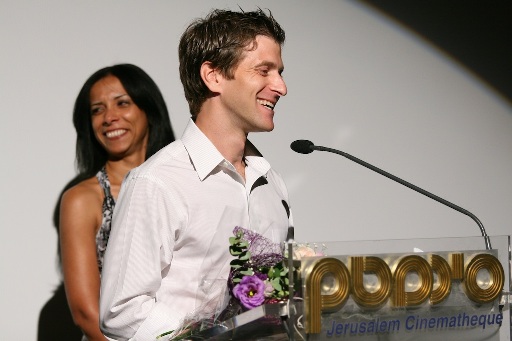
Jonathan said, “Not long after I started dating Ibitsam she told me that she wanted to film us because she was making a documentary about her life. I went along for the ride, I didn’t have a choice. About 6 weeks ago she called me, after we had not spoken for a year.”
It was at that point that Jonathan learned that the movie’s focus was about the relationship. Of the movie he said, “I think it does a fantastic job representing the emotional realities.” Of the relationship, he said that when he first met Ibtisam, “The only thing I knew is that she was beautiful and like many guys in Tel Aviv that was enough.”
As the relationship deepened and they came to know and appreciate one another’s qualities, growing closer, the inherent difficulties also became more apparent. Jonathan revealed, “Not long after the movie we broke up. The gap between us is too great and we couldn’t make it work. I don’t regret having tried and loved, and having been filmed through all of it. I hope you enjoyed the movie I certainly did.”
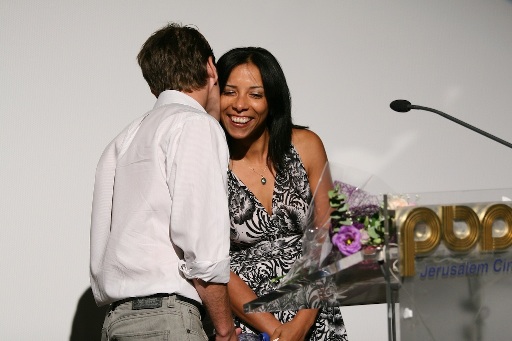
He expressed the hope that perhaps seeing the film will help others confronting similar situations. Seeing these two people, who had the courage to follow their hearts and minds, conveying a message that romantic love may not overcome all obstacles, but caring and respect can endure, was an inspiring, unforgettable experience.
AYELET DEKEL


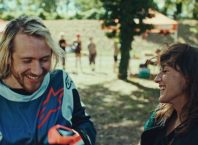
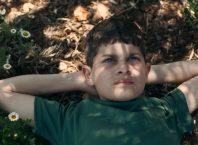
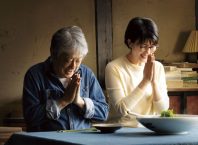
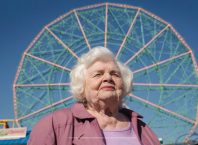
Thank you for an excellent overview of this experience. You are definitely ready for prime-time, as a writer. Touching, and professional !
Please continue your awsome work !
What a wonderful film this appears to be, and what two wonderful people! I can’t wait until the film arrives in New York.
Comments are closed.